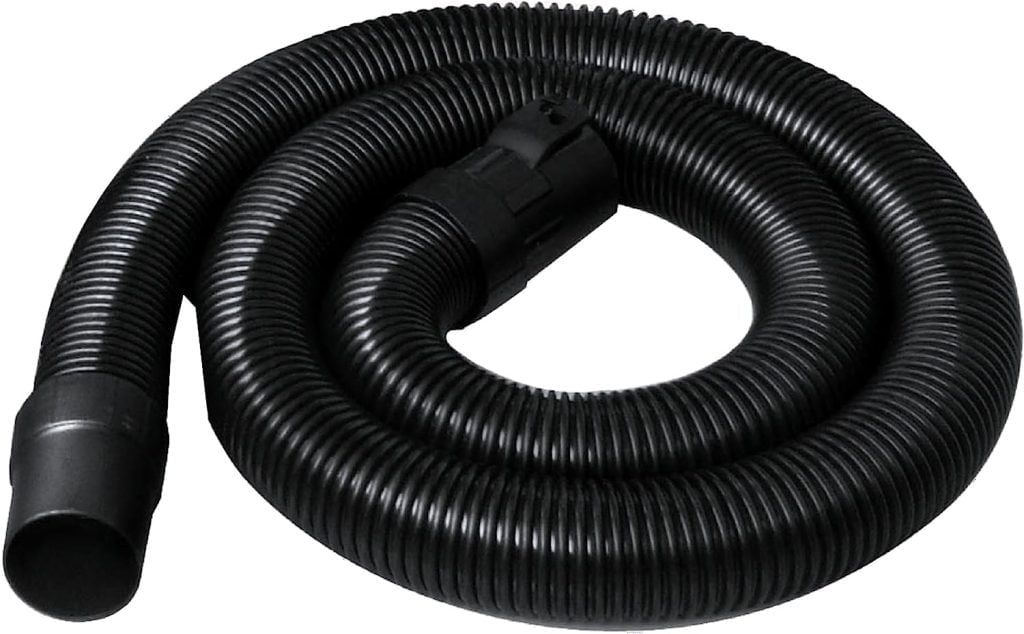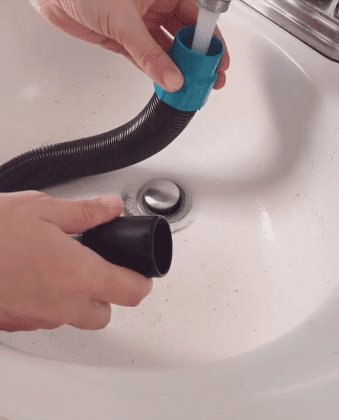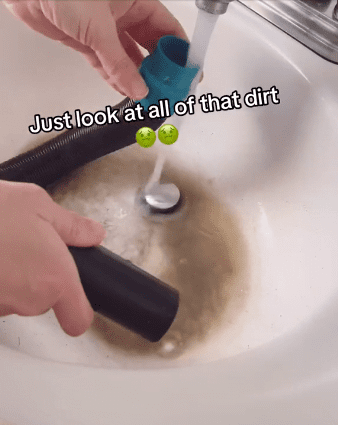When it comes to keeping a clean and healthy home, vacuum cleaners are an absolute necessity. On the other hand, the maintenance of an essential component, specifically the vacuum hose, is frequently neglected. It is imperative for the effective operation of your vacuum cleaner that the vacuum hose be kept clean. In this post, we will go into the step-by-step procedure of how to effectively clean your vacuum hose, which will ensure that your vacuum cleaner operates at its peak performance and lasts for as long as possible.
Before we begin:
Vacuum hoses are the pathways of your cleaning machine, responsible for transporting dirt and debris into the vacuum bag or container. Over time, these hoses can accumulate dust, hair, and other particles, clogging the airflow and reducing the vacuum’s suction power. Regularly cleaning your vacuum hose is essential to maintain its functionality and extend its lifespan.

Why Clean the Vacuum Hose?
A clean vacuum hose ensures that your vacuum cleaner operates at its best capacity. When the hose is clogged, the suction power weakens, reducing the overall cleaning efficiency. Moreover, a clean hose prevents unpleasant odors caused by accumulated debris.
Understanding the Importance of a Clean Vacuum Hose
A clean vacuum hose is essential for efficient vacuuming. Over time, dust, debris, and hair can accumulate in the hose, obstructing airflow and reducing suction power. Regular cleaning not only enhances the vacuum’s performance but also contributes to a healthier indoor environment.
When Should the Vacuum Hose Be Cleaned?
The frequency with which you clean your vacuum hose is determined by its use. If you vacuum frequently or have pets, you should clean the hose every 1-2 months. A thorough cleaning every 3-4 months should be adequate for less regular use.
Required Tools and Materials
Gather the following items to effectively clean your vacuum hose:
- Water that is warm
- Gentle detergent
- Brush with a long, flexible bristle
- a towel or a cloth
Step-by-Step Cleaning Process
To ensure that your vacuum hose is fully cleaned, follow these steps:
- Prepare the Cleaning Solution:
- Mix warm water with a mild detergent in a bucket.
- Detach the Hose:
- Carefully disconnect the hose from both the vacuum cleaner and the attachment nozzle.
- Soak the Hose:
- Submerge the hose in the prepared cleaning solution, ensuring it’s completely immersed.
- Clean the Interior:
- Use a long, flexible brush to gently scrub the interior of the hose, removing any dirt or debris.
- Rinse the Hose:
- Thoroughly rinse the hose with clean water to remove all soap residue.
- Air-Dry the Hose:
- Hang the hose in a well-ventilated area and allow it to air-dry completely.
- Reattach the Hose:
- Once dry, reattach the hose to the vacuum cleaner and the attachment nozzle securely.


Preventing Future Build-up
To maintain a clean vacuum hose for longer, consider the following tips:
- Regularly check and clean the vacuum filters.
- Avoid vacuuming damp or wet areas.
- Clear large debris before vacuuming to prevent hose blockages.
Avoiding the Most Common Errors
During the process of cleaning, make sure not to make the following errors:
utilizing powerful chemicals that have the potential to cause damage to the hose.
Using an excessive amount of force, which could result in the hose becoming damaged.
Failure to completely dry the hose might result in the growth of mold, which can produce a musty smell.
How Maintaining a Clean Hose Can Boost Your Vacuum’s Performance
If the vacuum hose is kept clean, it will allow for optimal airflow, which will lead to improved suction and a more thorough cleaning. Your vacuum cleaner will be able to effectively remove dirt and debris from a variety of surfaces provided that the hose is clear of any obstructions.
Making Sure Everyone Is Safe While Cleaning
When cleaning the hose of your vacuum, you should put safety first:
To prevent breathing in cleaning fumes, work in an area that has adequate ventilation.
Take precautions to avoid injuring yourself by handling the hose and cleaning instruments with care.
Advice from Industry Professionals to Help You Clean Better
To achieve a flawless finish on the vacuum hose:
If you want to keep the inside from getting damaged, you should choose a brush that has soft bristles.
Check the directions provided by the manufacturer for any specific cleaning procedures.
Problems with Vacuum Hoses and How to Fix Them
If you are having issues with your vacuum hose, such as recurring clogs or damage, you should review the handbook provided by the manufacturer or get in touch with customer care to receive direction on the appropriate measures for troubleshooting.
Do-it-yourself vs. hiring a Professional Cleaner
Even if you can clean your vacuum hose at home, hiring a professional cleaning service may ensure that the task is done in a more complete and experienced manner, which is especially important if you are not familiar with the process.
Impact on the Environment Caused by Cleaning Vacuum Hoses
A cleaner environment is the result of regular maintenance, which should include cleaning the hose that connects your vacuum to the machine. By preventing your vacuum cleaner from needing to be replaced as frequently, you may cut down on the amount of waste that is produced.
The Final Verdict
A vacuum cleaner that functions well relies on having a vacuum hose that is regularly cleaned. Your home will be cleaner as a result of the optimal performance of your vacuum, which is ensured by routine maintenance and a comprehensive cleaning of the hose. If you follow the techniques and advice that are provided, you can maintain the optimal condition of your vacuum hose and benefit from a more efficient cleaning experience.
FAQs
Can I use any detergent for cleaning the vacuum hose?
A1: It’s best to use a mild detergent to avoid any damage to the hose’s material.
How often should I get a new vacuum hose?
A vacuum hose can last for several years provided that it is properly maintained. If you observe substantial wear or tear on it, you should replace it.
Can a blocked hose cause damage to my vacuum cleaner?
yes; a severely clogged hose can put strain on the motor as well as other components, which may result in damage
Are there specialized cleaning products for vacuum hoses?A5: You can find items created specifically for cleaning vacuum hoses in retail stores or on the internet. These goods are available for purchase.
